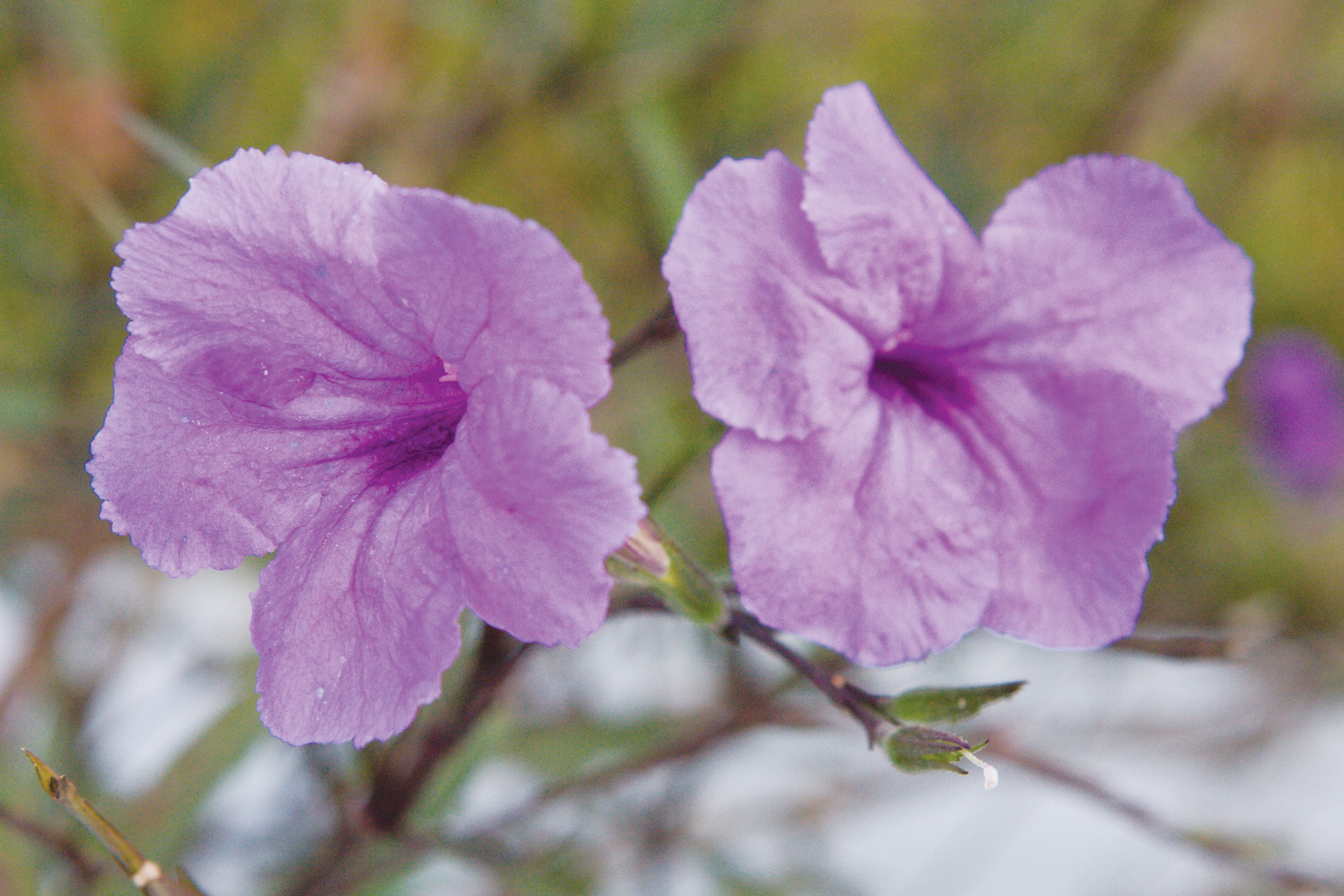Mexican Petunias in the Landscape
GREN COVE SPRINGS – Everywhere you go around Florida, Mexican Petunias (Ruellia simplex) and there were many good reasons to plant these when the plant was first introduced here. They are highly …
This item is available in full to subscribers.
Attention subscribers
To continue reading, you will need to either log in to your subscriber account, or purchase a new subscription.
If you are a current print subscriber, you can set up a free website account and connect your subscription to it by clicking here.
If you are a digital subscriber with an active, online-only subscription then you already have an account here. Just reset your password if you've not yet logged in to your account on this new site.
Otherwise, click here to view your options for subscribing.
Please log in to continueDon't have an ID?Print subscribersIf you're a print subscriber, but do not yet have an online account, click here to create one. Non-subscribersClick here to see your options for subscribing. Single day passYou also have the option of purchasing 24 hours of access, for $1.00. Click here to purchase a single day pass. |
Mexican Petunias in the Landscape
GREN COVE SPRINGS – Everywhere you go around Florida, Mexican Petunias (Ruellia simplex) and there were many good reasons to plant these when the plant was first introduced here. They are highly attractive with copious amounts of purple blooms and vertical habit along with the ability to survive in areas where many other plants cannot. However, these characteristics also allow them to be one of our most common invasive species.
Mexican Petunias can now not only be found in many landscapes, but also in many natural areas such as Payne’s Prairie where you can see it growing along waterways. It can survive in full sun to shade and tolerate drought but has been observed growing into bodies of water. The main key to its invasiveness comes down to how successfully it reproduces.
When planted, many people note how quickly and easily they fill in a desired area, and often times other areas of the landscape. This is due to that after the flower drops, each only lasting one day, a fruit with seeds will form. After they dry sufficiently, the introduction of water through irrigation or rain will cause them to explode open, spreading seeds 10 feet in every direction. Once these seeds reach the ground, they have been found to have germination rates over 90 percent. Even in full shade, where the Mexican petunia does not put out its purple blooms, the plant still flowers but these smaller, whitish blooms do not open and pollinate themselves, producing and spreading seed.
These characteristics lead to a plant that excels in the landscape and in nature but causes issues through overtaking native plants, which in turn reduces the populations of all the organisms dependent on native species. Due to this, the University of Florida recommends not utilizing Mexican Petunias in the landscape with a few exceptions.
One of these exceptions is readily available in the nursery industry, Ruellia britonnia ‘Purple Showers,’ which is a variety that does not produce seeds but has the same positive characteristics of the normal simplex. In addition to this variety, look for the Mayan Purple, Mayan Pink, Mayan White, and Mayan Compact Purple varieties of Ruellia simplex which were developed by the University of Florida. With sterile varieties, it is recommended to dispose of any cuttings or removed plants properly so that they do not enter areas where they can spread vegetatively. The native Ruellia carolinensis is also great for the landscape.
If you currently have non-sterile Ruellia simplex (look for a little brown or black pod after the flower drops, if it has one it is fertile), it is recommended to remove the plants by hand or to utilize a chemical such a Glyphosate by the instructions on the label to kill them before removal. A follow up application 3-6 months later may be needed to catch some seedlings that emerge. Following removal, establish a new planting on non-invasive landscape plants.
If you have any questions about the invasive species, Master Gardener program, landscape and garden topics, or need plant or pest materials identified, contact the University of Florida/IFAS Extension Office online at http://www.clay.ifas.ufl.edu, follow us on Facebook, or call by phone at (904) 284-6355. Visit clayextension.eventbrite.com to see and register for upcoming classes or call the office for more information.








